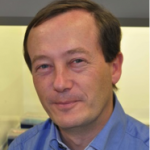Lien vers Pubmed [PMID] – 22360318
Mycoses 2012 May;55(3):e74-84
Chronic disseminated candidosis, often referred to as hepatosplenic candidosis (HSC), is an infection due to Candida spp. that mainly involves the liver and spleen. HSC occurs mostly in patients after profound and prolonged neutropenia, which is more often seen in patients with acute haematological malignancies. The incidence of HSC ranges from 3% to 29% in patients suffering from Acute Leukaemia. However, it is now seen less frequently with the widespread use of antifungal agents as prophylaxis or as preemptive therapy. Early and adequate diagnosis and treatment of HSC are crucial, as treatment delays can negatively affect the prognosis of the underlying condition. The pathogenesis is not well understood, but it is believed that it may be due to an unbalanced adaptive immune response that leads to an exacerbated inflammatory reaction, resulting in an Immune Reconstitution Inflammatory Syndrome. In this context, new therapeutic approaches such as the use of adjuvant high-dose corticosteroids have been shown beneficial. This article will focus on the clinical, diagnostic and therapeutic aspects of HSC and provide an accurate review of recent pathophysiological data.

